Becoming greener is a huge thing nowadays. Politically enforced, wanted and appreciated by us, the society, it is a big topic for any producer of any goods or any provider of any service. Reducing the ecological footprint should be a matter of course, for us all. But it can all-too often be just a buzzword for companies to produce nice sounding headlines or putting oneself into the spotlights. We call it “greenwashing”. Sometimes the lines between honest and serious efforts and marketing gags are very thin. Which is a shame. I am certainly not a votary of the “last generation”, but of course, I am interested in how we can make our passion for boats and sailing more sustainable.
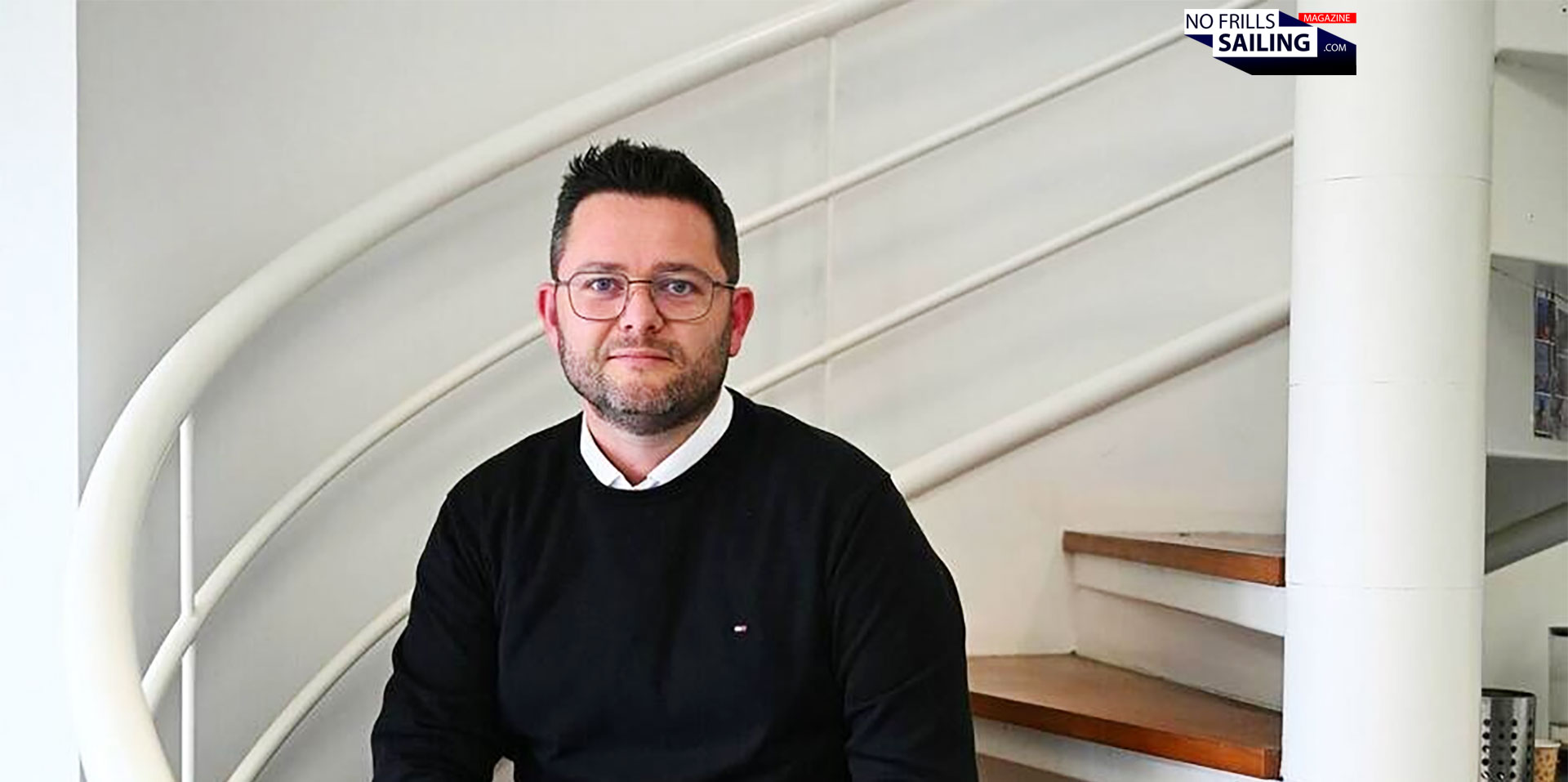
In this, to begin with, it´s the production of a sailboat that is of interest. Since GRP is a crude-oil-based synthetic product, or let´s say, it used to be so for the most part of it, and the making of deck and hull is just incredibly energy-intensive, it´s very interesting to talk to people who work in exactly this area. Last dealer´s meeting in Nantes I therefore asked Erwan Faoucher of Beneteau if he would agree to do an interview on the efforts of the company – the honest efforts, free of marketing and PR. Here´s what we´ve talked about.
Interview with Erwan Faoucher of Beneteau
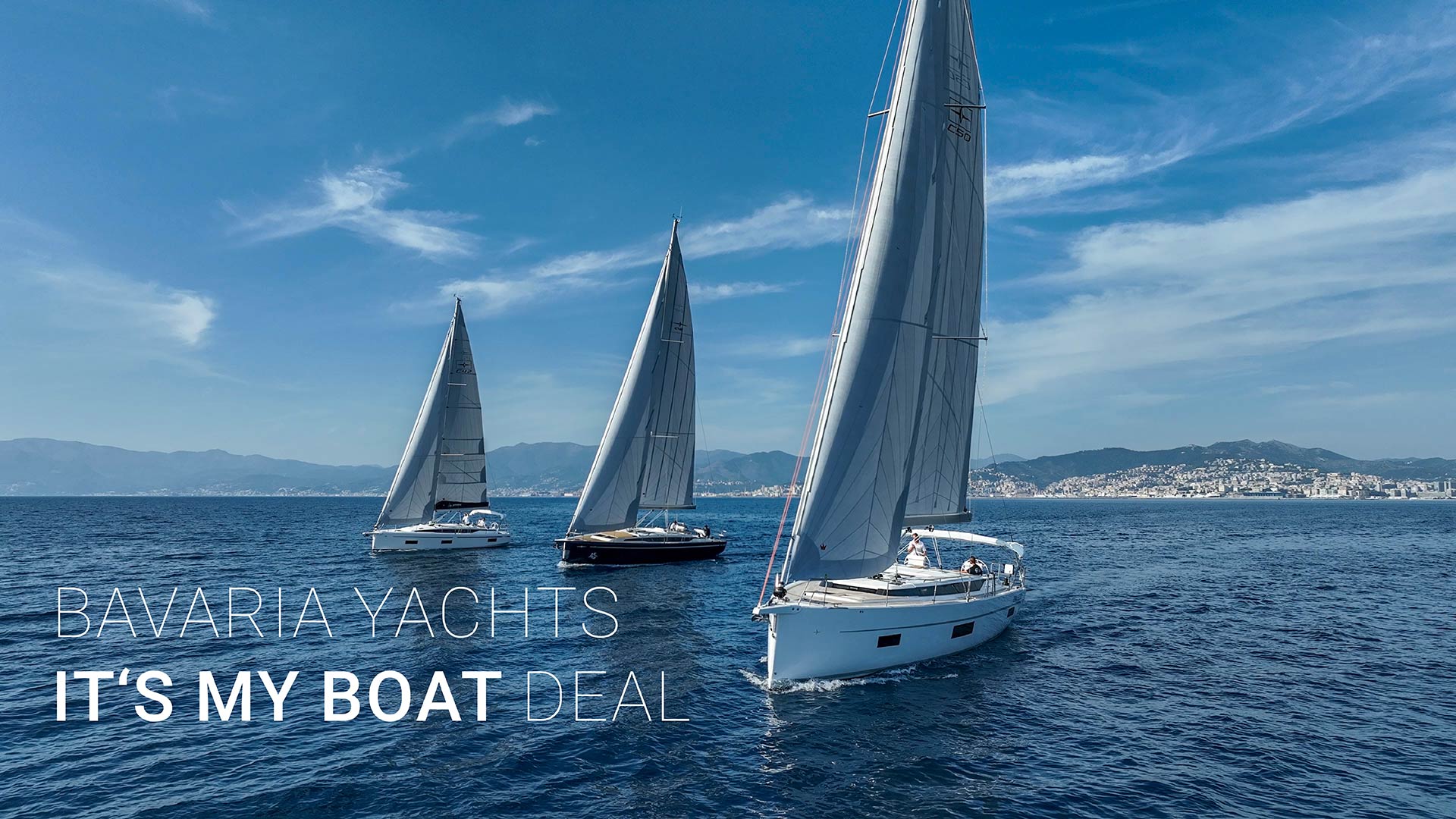
NO FRILLS SAILING.com | Lars Reisberg: “Erwan, first of all thanks for talking with me. Just for the introduction: Tell me shortly who you are, are you a sailor yourself? And of course, what your responsibilities are within Beneteau.”
Erwan Faoucher | BENETEAU: “Hello Lars, my pleasure! Who am I? I am not a sailor myself, which is a pity, I know. But I am a huge fan of boats and yachts. I hold a Doctor in chemistry and I am a degreed engineer in material science. Beneteau is a huge brand in France as you know and I have always looked at it to being a fantastic company. Now I am working for this exact company and I am really happy to do so! I am 40 years old now, married and have two nice children. My background is very technical: I am an innovations and sustainability expert and within Beneteau I am in charge of the technical department for the shipyard. Maybe there is a reason why my colleagues found a special nickname for me … Anyway, I am a very technical guy. For Beneteau, I am working since five years now.”
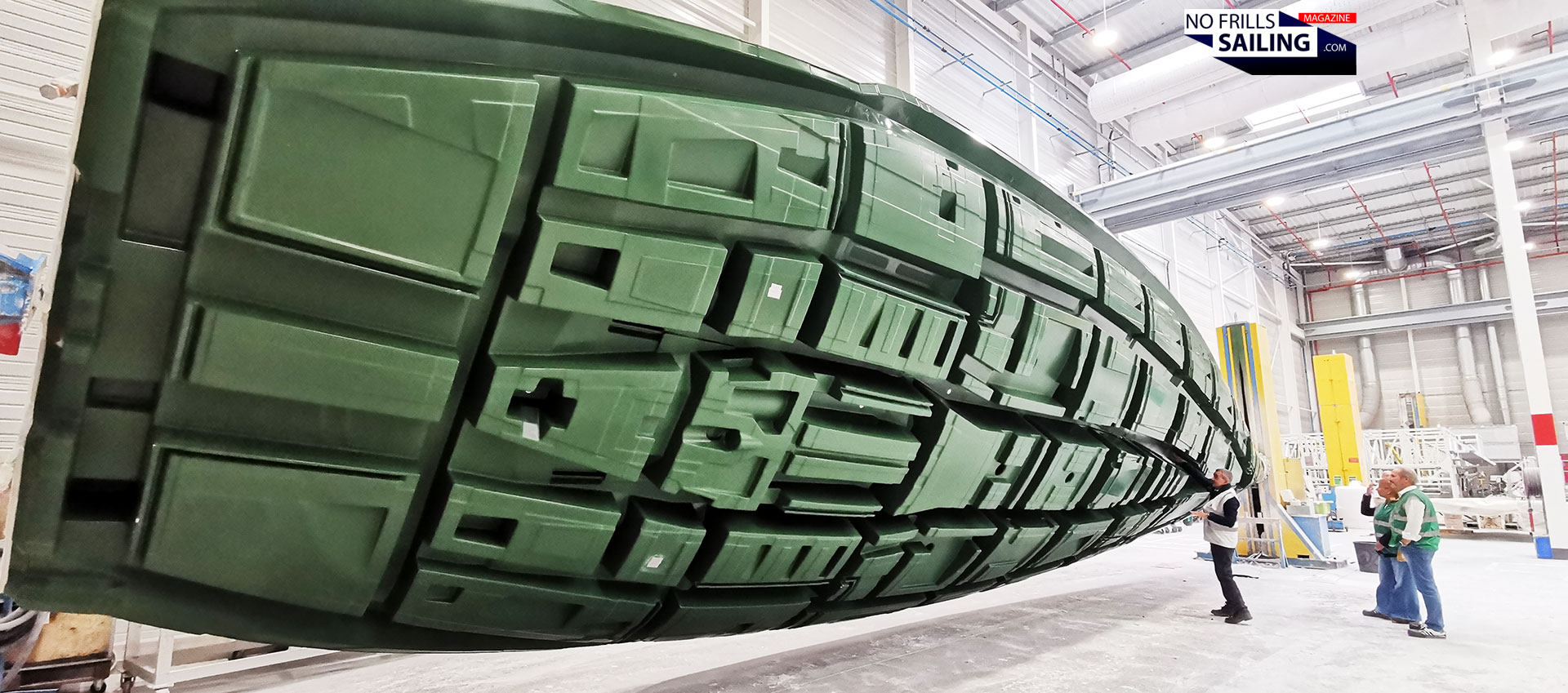
NO FRILLS SAILING.com | Lars Reisberg: “So, in your organization, you oversee the research & development on the one hand and the sustainability-issues, meaning the shipyard´s strive to become more “green” – isn´t this something that cancels itself out?”
Erwan Faoucher | BENETEAU: “This is a very good question, Lars. And obviously, the answer is “no”! You see, for us, it is not a choice or a nice wish to become greener, it is mandatory. It´s an integral part of the workings of the company, besides, we have laws which are binding. Becoming more sustainably, saving energy and materials and such is part of our everyday´s life. We have to tackle this challenge. For us, it would be insane to strive for innovation without including the sustainability-element in it! For me, I told you that I was a very technical guy, a part of the answer to this challenge is the development of technology. Better technology will make this aim become feasible. But, it´s not just that. Another part of this equation is a change of behavior. By that I mean the behavior of all of us: Producers, suppliers, dealers and of course the users, the sailors, who are out on the water with our products.”
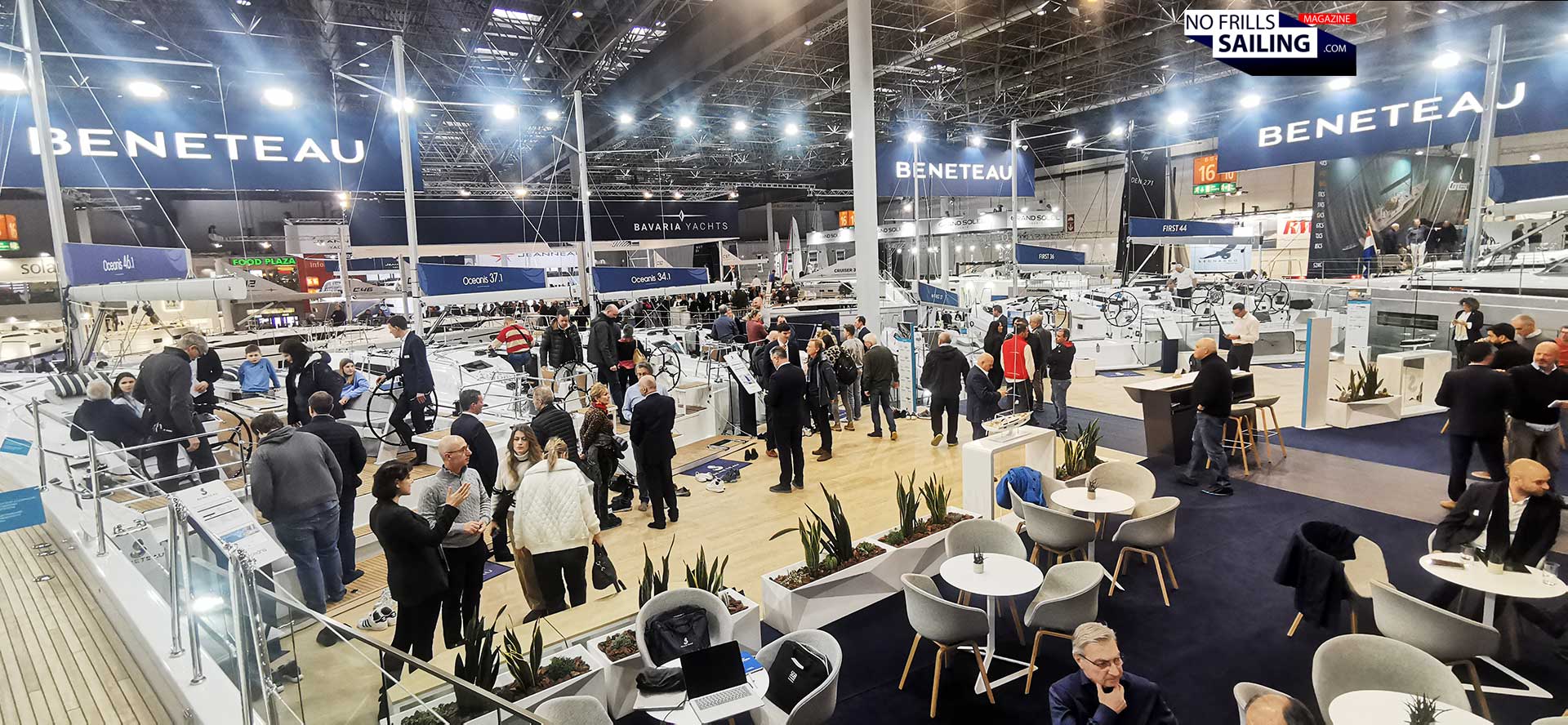
NO FRILLS SAILING.com | Lars Reisberg: “That sounds too good to be true, Erwan, if I may challenge you a bit more aggressively: All-too often we have “sustainability efforts” of companies which turn out to just be greenwashing. Is it really something that Beneteau takes seriously? For example, how much (maybe in Euro or per cent from turnover) is Beneteau investing in its sustainability program?”
Erwan Faoucher | BENETEAU: “I know that there is a lot of BS and PR going on. It´s a shame, to be honest and I can fully understand your skepticism in this question! Here at Beneteau we take this extremely seriously! You know that one of our company´s mottos is to bring dreams to the water. I´d say that making those dreams come true, today, must also mean that this has to be done in a sustainable way. We fell ourselves to be in charge of preserving our rich and beautiful environment for the future of our kids – I mean, we build boats for vocational use. What is a boat good for then when there is no clean water, no nice anchorage or no marine life to see any more? We have to be on the forefront of environmental protection so that our customers can enjoy our products within it. Besides, I am a father of two kids. And I take this extremely seriously! Talking numbers, well, we have over 40 people in my department alone working on the various sustainability-projects. Even more people are employed working on our CSR-program (Corporate Social Responsibility-program) which includes the social and ethical aspects.”
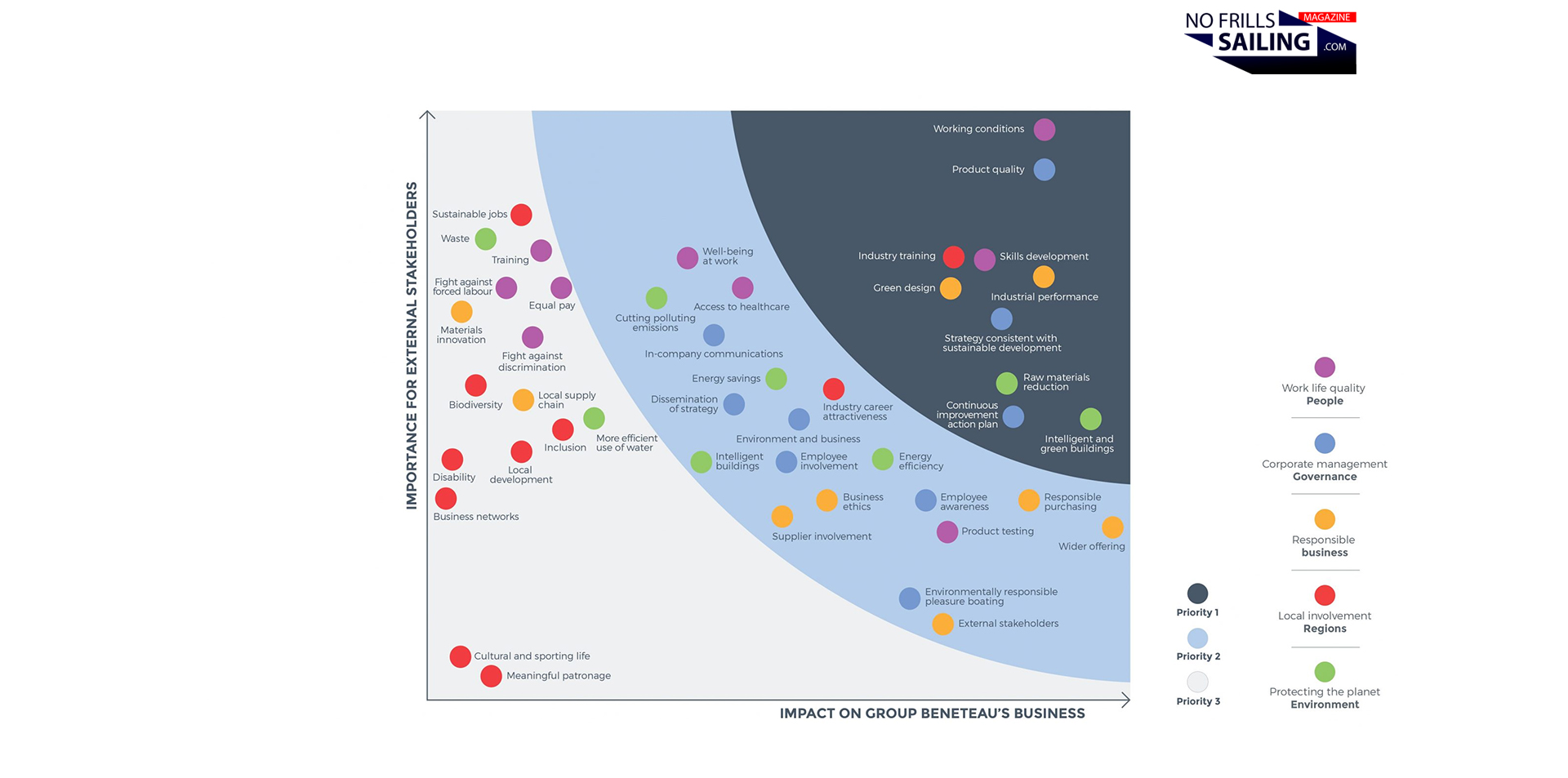
Erwan Faoucher | BENETEAU: “Maybe this is a good fact: For each and every project, before it really gets a green light, we have to check not only the question of innovation, but also the environmental impact. It is mandatory in our company. Only after we approve from an ecological and sustainability perspective, we decide whether or not we should go forward with it. In this, our system is designed to only approve for good projects. We also work on opportunities. For instance, we have brought some fifty people from the group during a four day-session on an event called “The Arch”. It´s a European initiative for companies to participate, coming up with 100 ad-hoc solutions to drastically improve the ecological transition of companies. You can imagine that this is a huge effort – not a lot of brands would do such a big invest. We did. And more so, we have done a second session with “The Arch” with another fifty people. Apart from outside projects, we have also launched internal projects, like the “La fresque du climat”, an internal training program to reduce footprint in daily work. All this is a huge commitment (and cost-pool of course, from the Beneteau group. And I can say that I am extremely proud to be part of it.”
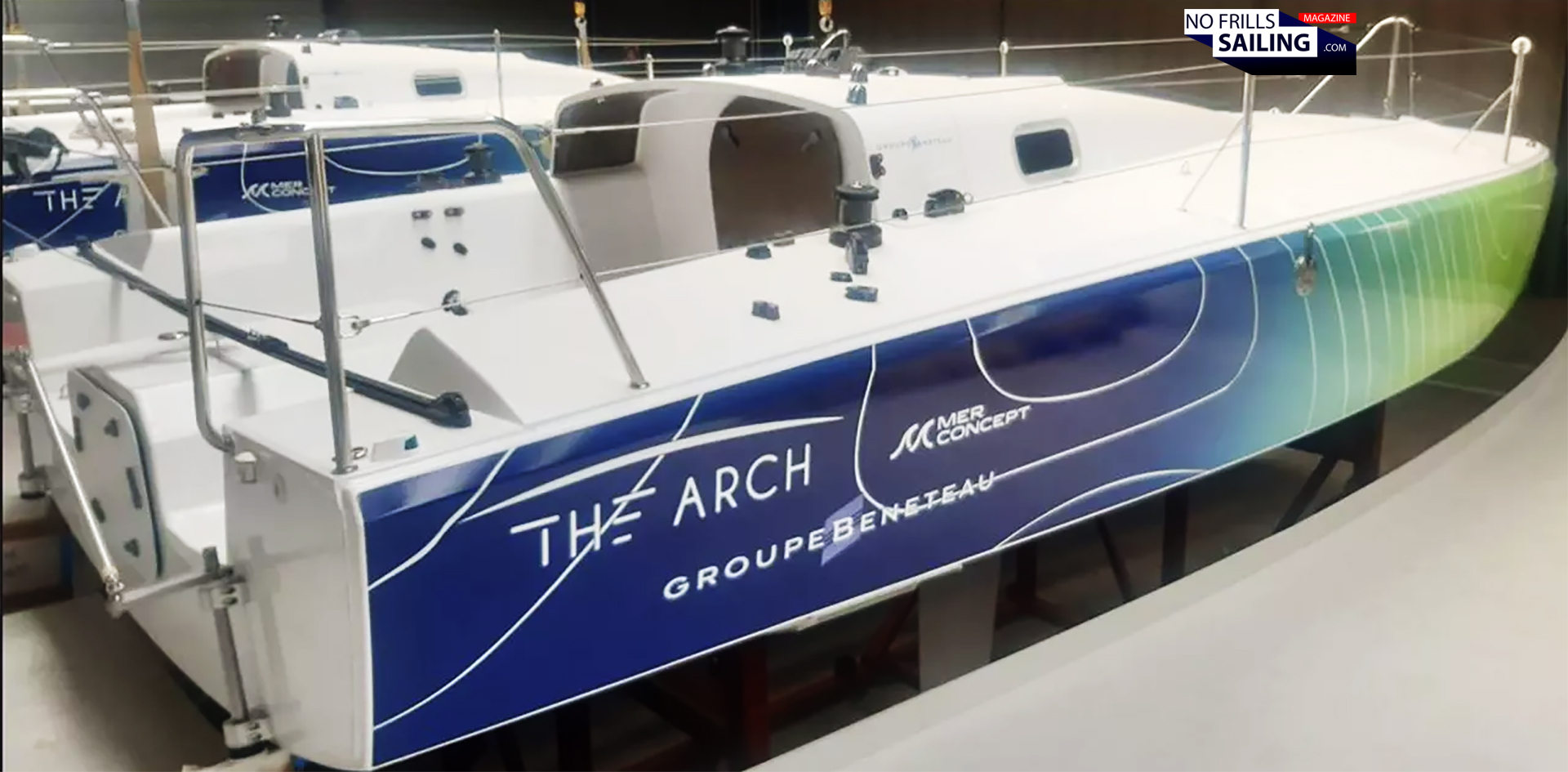
NO FRILLS SAILING.com | Lars Reisberg: “What are the main projects currently at Beneteau regarding sustainability in the very boat production-part?”
Erwan Faoucher | BENETEAU: “Well, regarding our products, we look at solutions to reduce drastically our Carbon footprint. That is priority one. The global goal, as you may know, is a reduction of CO2-emission of 30 per cent by the year 2030. Really diving deep into that subject you quickly understand that it is a huge challenge! Therefore we work in five main areas: First, reducing the environmental footprint in our plants and shipyards on site, which is mainly reduction of VOCs (Volatile Organic Compounds) and of course the energy management of the sites. Second, we are very active in finding better materials (in term of sustainability) to replace the common polyester and glass fibers. Third, a huge topic as well, is to come up with alternative propulsion systems, mostly electrified, to replace the use of fossil energy. Fourth, you know it very well, is digital connectivity of our boats to help our customers of tomorrow to understand how to make better and sustainable choices when they use our boats. And a fifth, again, immensely important issue, is the end-of-life of the boat. I am the President of APER, an association promotive eco-friendly recycling solutions for pleasure boats here in France. We are helping some start-up companies for example in composite recycling to implement their technology and ideas at large scale. So you see, there is a lot going on – on so many levels!”
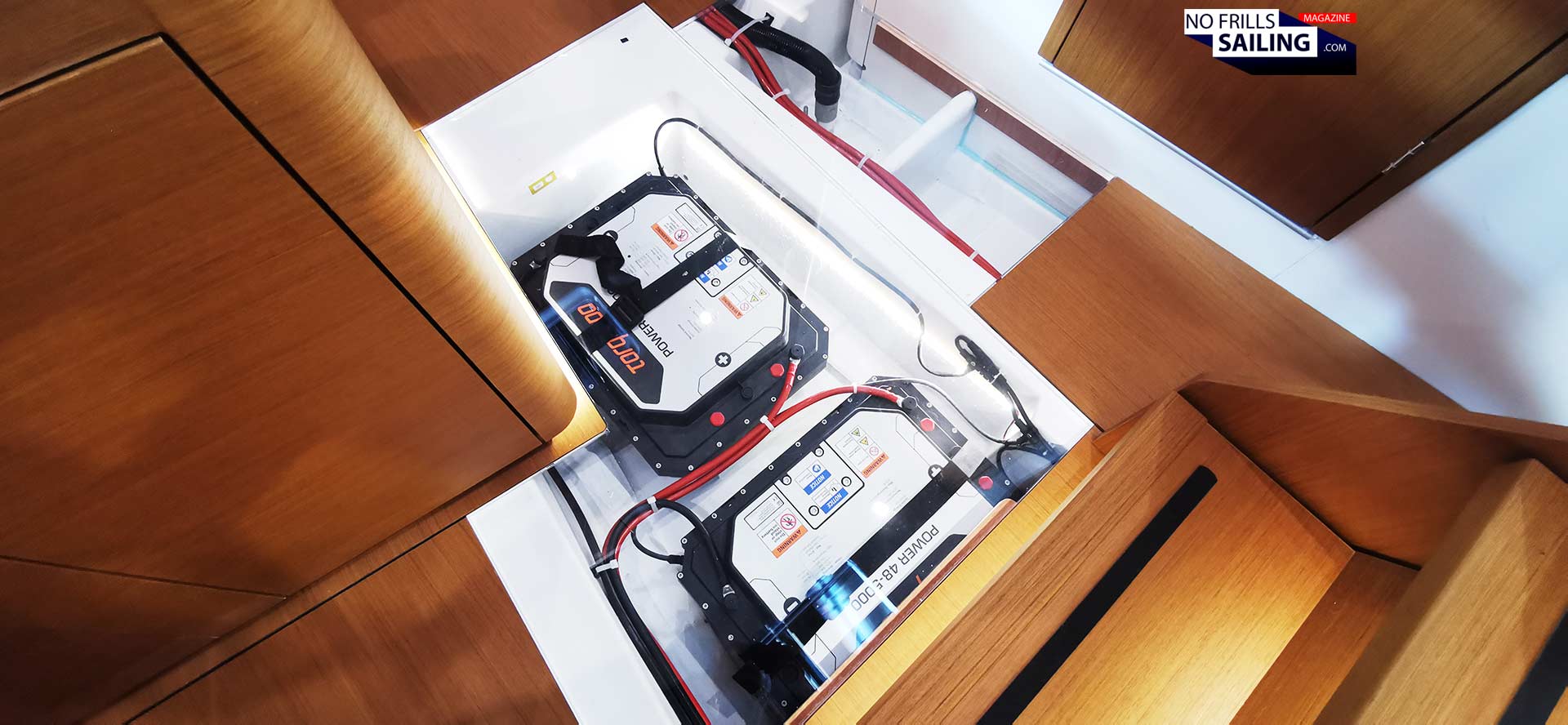
NO FRILLS SAILING.com | Lars Reisberg: “You are certainly a man of science – hence, a man of numbers. So, how is “becoming greener” measured? I mean, what are the real measurable indicators in which progress is defined and controlled?”
Erwan Faoucher | BENETEAU: “Well, there are many. One example that is easy to explain is the LCA, the life cycle analysis. We do it for all of the market segments in order to understand the actual impact of our boats on the environment. Meaning, from production to the actual use of the customer to the end of its life. Our innovations are influencing the LCA-data and thus we can see if and how big our changes work out.”
NO FRILLS SAILING.com | Lars Reisberg: “I am partially doing this interview with you because I´ve made an article on yacht transport wrapping, you may remember – it is called “A mountain of plastic”. Is this particular detail a concern at the shipyard?”
Erwan Faoucher | BENETEAU: “Yes, absolutely! This is obviously a topic that needs to be addressed. It is part of our road map. But of course we cannot tackle all the challenges at the same time. Right now, we focus on those projects that can have a big impact on our CO2-emissions as priority. Then we will go down into the funnel of topics to be addressed, of which plastic wrapping for road transport of boats is definitely a part of! I know that other brands seem to be faster with this particular detail, but as of now, our answer to single-use plastic wrap is still confidential, I´m sorry Lars.”
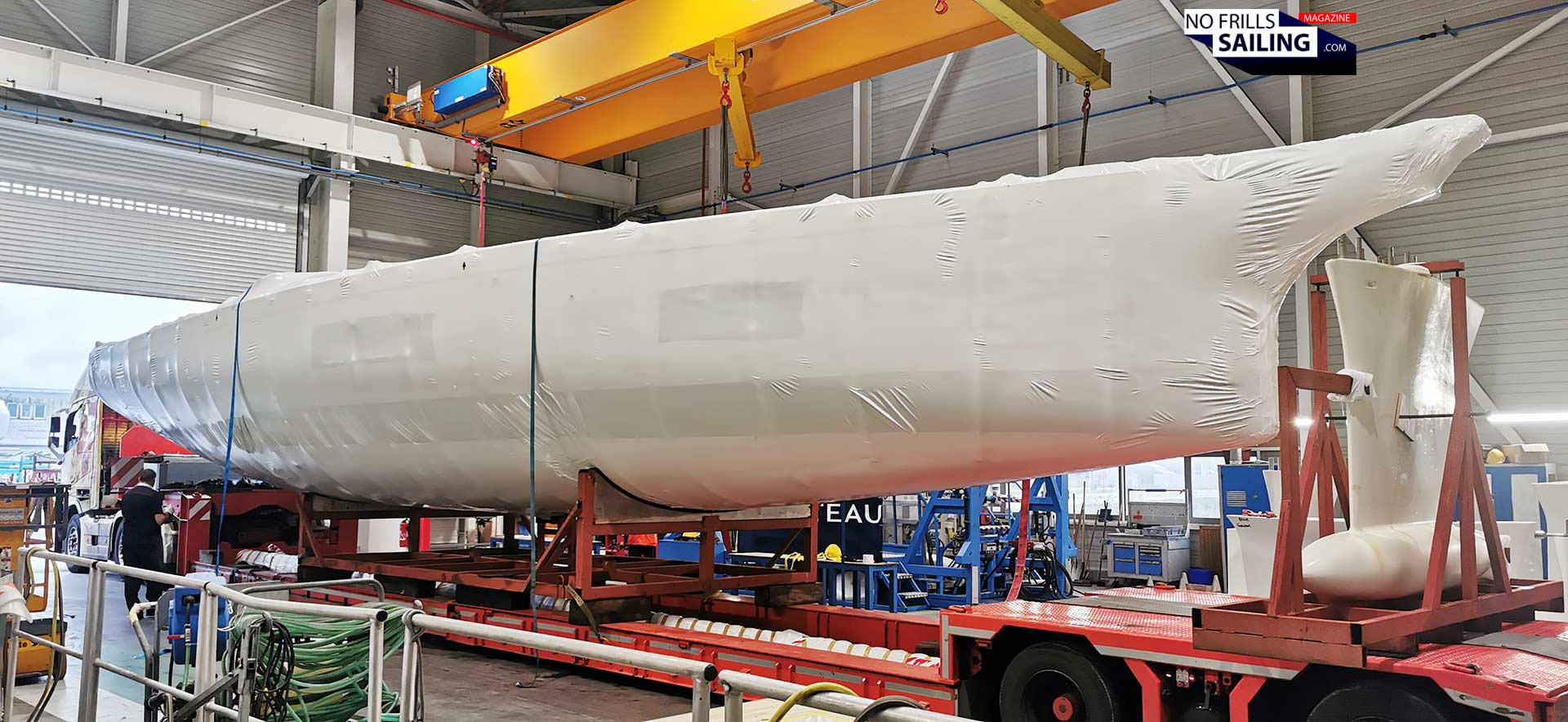
NO FRILLS SAILING.com | Lars Reisberg: “Sorry to insist in this one, but wouldn´t it also be an easy or quick win to just take off the wrapping from the standard and have it as an option clients will have to willfully accept (and pay for)?”
Erwan Faoucher | BENETEAU: “Well, yes and no. It is a big topic, sure. I have studies which clearly show that the customers are extremely concerned about sustainability. But, also, we have studies – where the questioned customers remained anonymous – where we absolutely and clearly see that they are not willing to pay more money for our solutions. They consider it is our duty as producers to pay for it. You see, it is not just a technical issue, but also a market issue, customer behavior and sociological aspects of a society as a whole. Therefore we need to really tackle the big challenges first.”
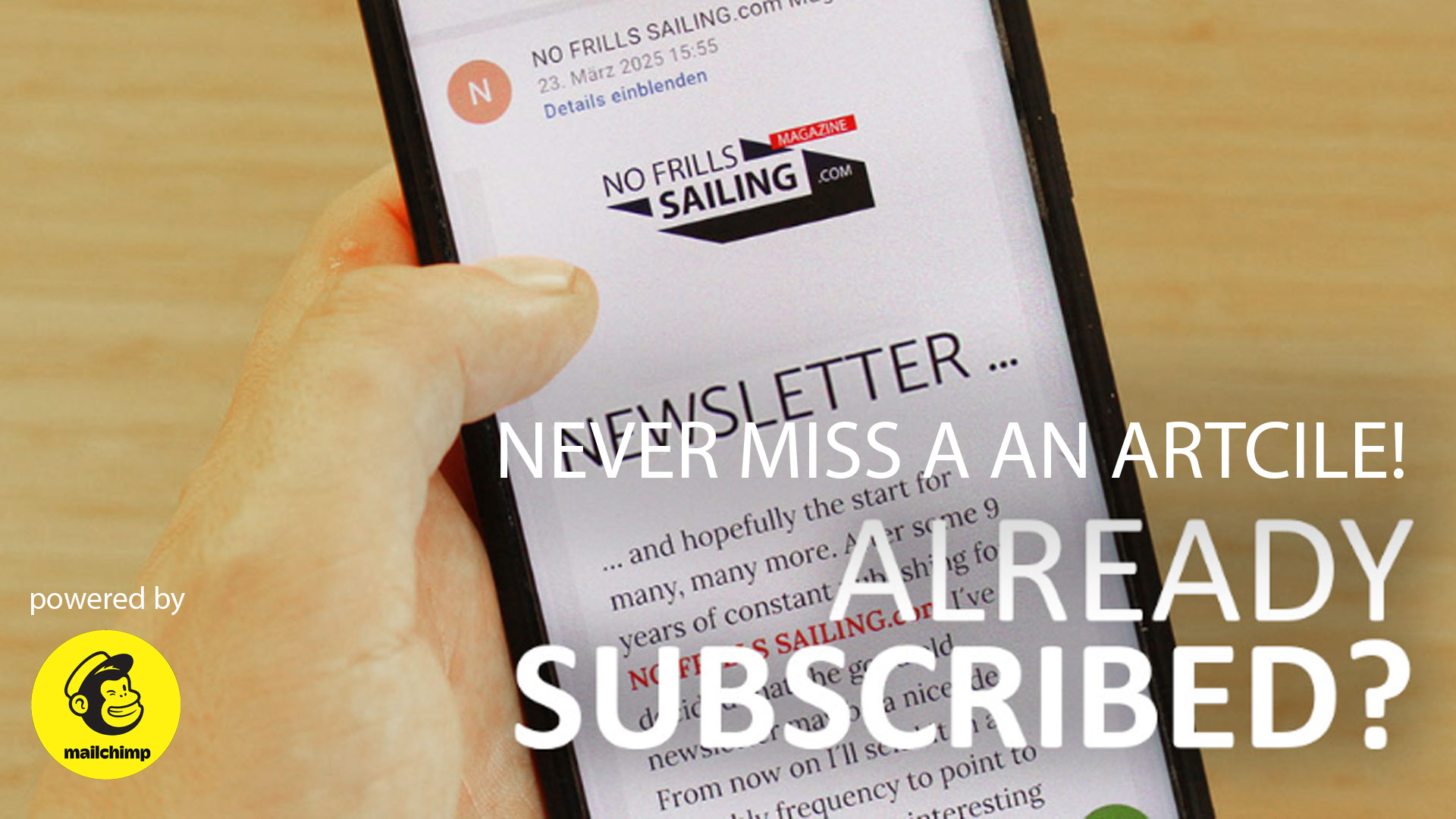
My résumé: A super-tanker needs time to turn
Thanks, Erwan, for this intimate insight! For me it has become much clearer now, that “becoming green” is a very multi-facetted issue. It is a huge technological challenge, from energy, issues to materials and production techniques to training the workforce. It is also a big challenge in, let´s say, work ethics: Changing an industry once focused on producing as much as cheap as possible into a company that has a moral and ethical compass, by the way, taking into this equation the whole supply chain. It is also a huge challenge to take the customers with you. I found it interested what Erwan said in his last answer: Customers want to be very green, but apparently the willingness to pay more is a bit “underdeveloped”.
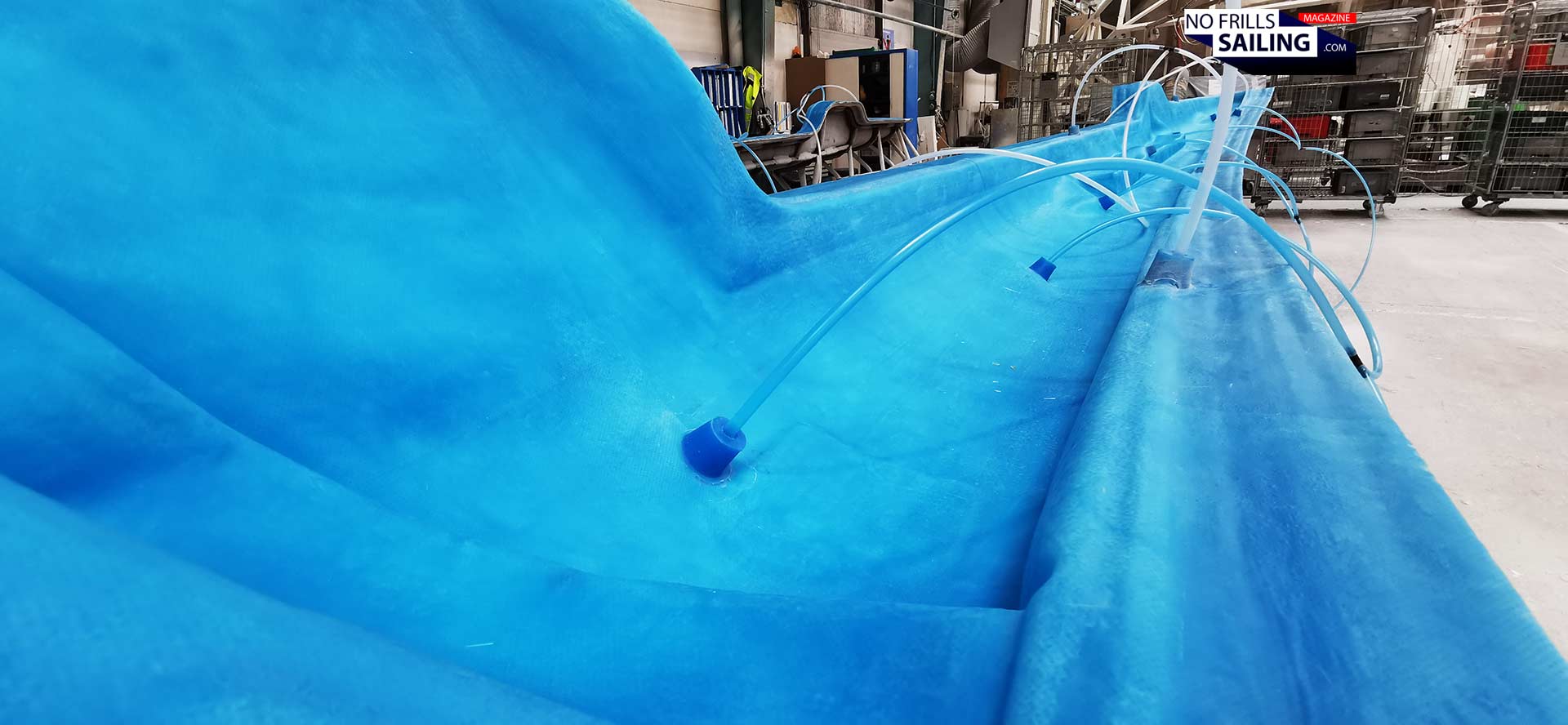
Beneteau takes real measures and I know, because I am an insider. They really want to make a difference and put things forward. But of course, they are a company in a capitalistic market system: They have to be able to compete with other brands and producers. There is no sense in dying the heroe´s death. It is interesting to see how such a big company prioritizes and engages these topics. And of course, it takes time for a supertanker to adjust course, even after the helmsman has laid in a new course and the rudder is turning. Thanks again, Erwan – all the best!
Pictures © by NO FRILLS SAILING.com, France Ouest and Groupe Beneteau
Related articles which may be interesting for you:
A mountain of plastic: Single use wrapping in boat transport
Electric avenue – the First 44 testbed for hybrid propulsion
Supplanting Teak in boat building


